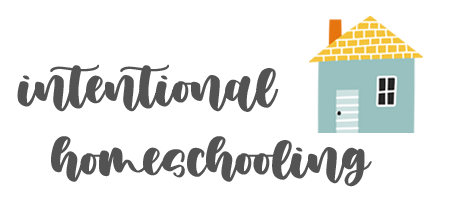Where to Start When You Want to Homeschool
I get a lot of questions about how to start homeschooling, or what a person should do when they have decided to homeschool and I wanted to have a good reference post to be able to send people to: hence this post!
If you are contemplating homeschooling or at the beginning of your journey I hope this post can be helpful! If you still have questions after reading this post I would love for you to contact me and I will do my best to try to answer your questions.

WHERE TO START WHEN YOU DECIDE TO HOMESCHOOL
#1 FIGURE OUT THE LEGAL SIDE
I’m not really going to go into this because this part varies so much depending where you live but the first thing you really need to do is find out what you need to do to make your homeschool legal. Where I live this is as simple as registering with our school division but I know the process can vary depending where you live.
#2 DECIDE YOUR PRIORITIES
When I posted the “where to start” question on Instagram awhile ago a lot of people recommended starting with what I have down as step #3, but I personally think that before you can figure out #3 you need to decide your priorities.
You are more than welcome to change your answers but if you decide arts are a big priority for you that could change your direction compared to if you decided nature and outdoors activities were a top priority.
For us big priorities, in no particular order, are: family culture, character development, learning about Christ and to be like Christ and lots and lots of books.
Knowing your top priorities will really help guide your homeschool method, resources you use and your daily schedule.

#3 PICK A HOMESCHOOLING PHILOSOPHY OR METHOD THAT RESONATES WITH YOU
I’m not going to get into the methods now but to read about what are (in my option) the five most popular homeschooling methods you can do that here.
Before you get worried that you have to agree to a homeschool philosophy, let me put your mind at ease, you definitely don’t, plus, one of the methods is “eclectic” which means you pull from a variety of methods and one is “unschooling”.
But, that being said, if you know a particular method resonates with you, say Charlotte Mason, or the classical approach, it makes it easier to find resources. With your philosophy in mind you can go to Google or Pinterest and look for resources that follow that method.
#4 DESCHOOL
Even if you are starting to homeschool in kindergarten and your kids have never been to school, chances are you have been and you probably need some time to remove old ideas you have about “what school should look like”. Deschooling often is more of a process for the parents than it really is for the kids.
Deschooling helps get rid of a lot of homeschooling misconceptions. The truth is, homeschooling does not have to look like school at home. I appreciate those in the UK who have the term “home educating”, because that is what it really is, it is just learning at home.
Another thing to realize is that kids learn a lot through play. This is something I never really believed in until I saw it in my own kids.

#5 START SMALL
When you are ready to jump in with homeschooling, it’s best to start small. Don’t start off by purchasing an all in one curriculum. While I personally don’t like curriculums I know some people enjoy them. I’m not necessarily saying never use a curriculum, I just don’t think the best time to buy one is at the beginning of your homeschool journey.
When you are ready to start, begin with a couple of read alouds and a couple of subjects or topics that interest you or your kids. From there you can decide if a full curriculum is what you want or not.
Using this technique I learned that I view homeschooling as a lifestyle – I like to teach my kids things I’m excited about, dig deeper into topics that interest them and make time for learning and rabbit trails in our day.
Those five points are the basis for starting to homeschool. Once you’ve done these steps you can choose to continue the route you have started down or change things up. Homeschooling is flexible and that is a great perk to take advantage of!
If you like the idea of a homeschooling approach that is relaxed, mostly interest-led, with lots of good books and space in the day for following rabbit trails I would suggest taking my Homeschooling as a Lifestyle Workshop. I’ll be updating the workshop in the next two months and adding a lot of extra content to it and if you enroll now you’ll have first access to the updates.







